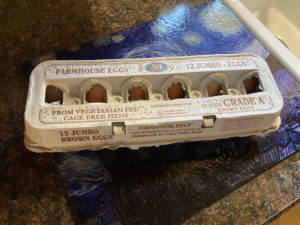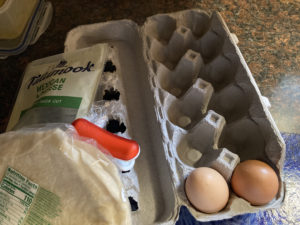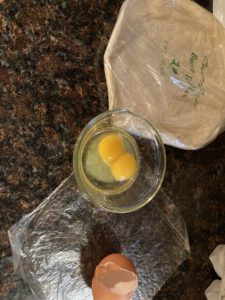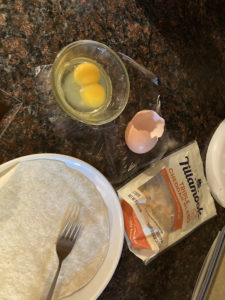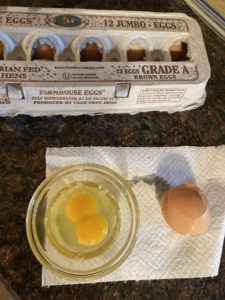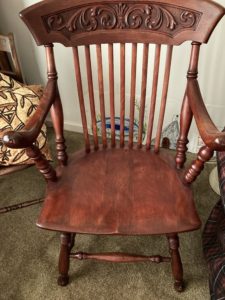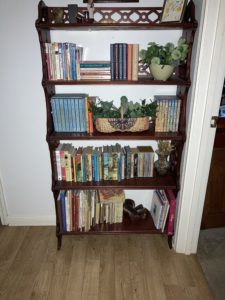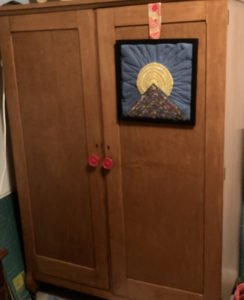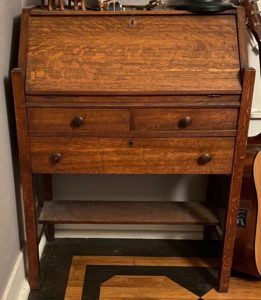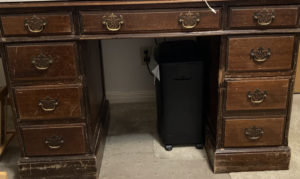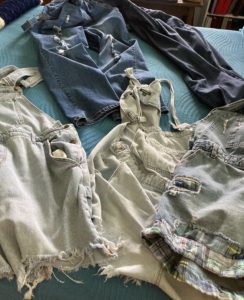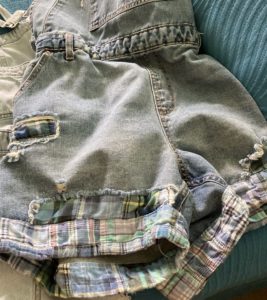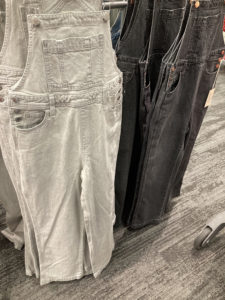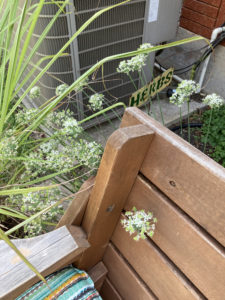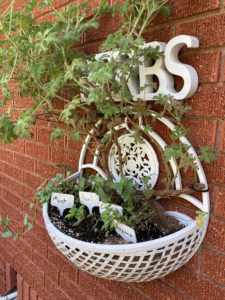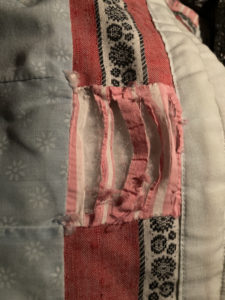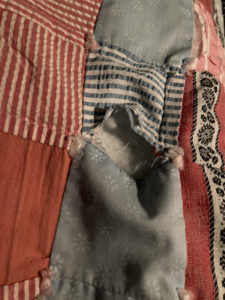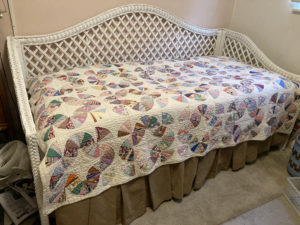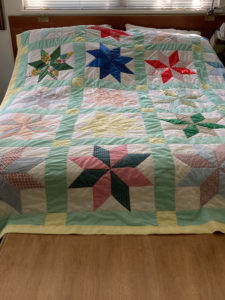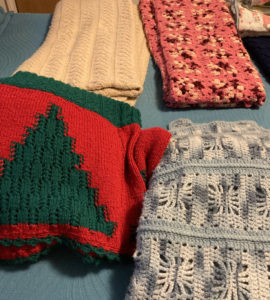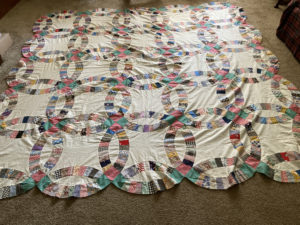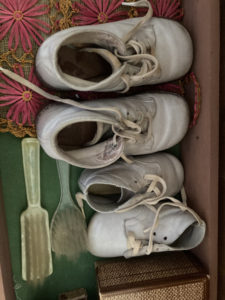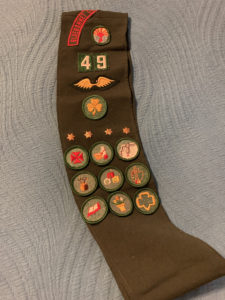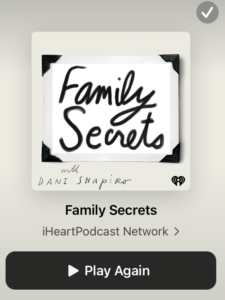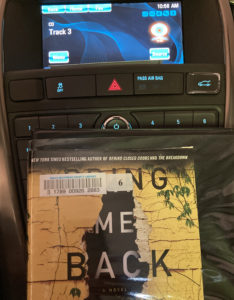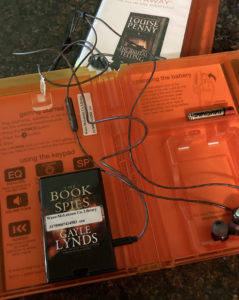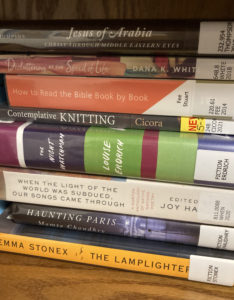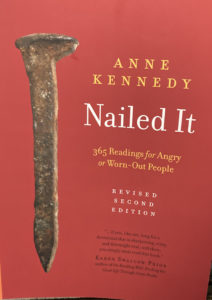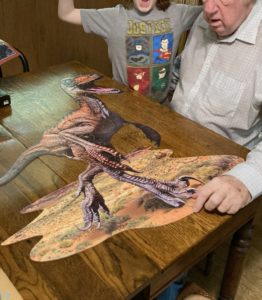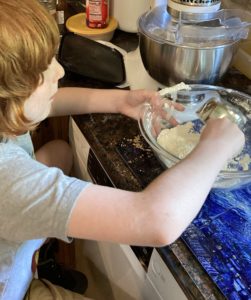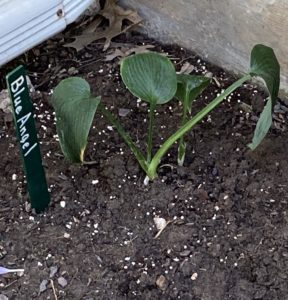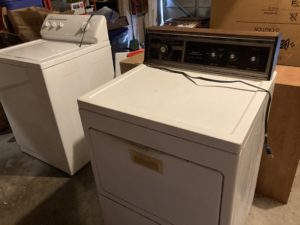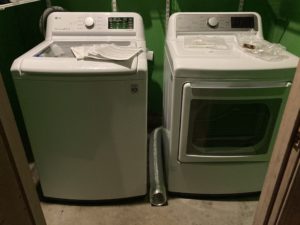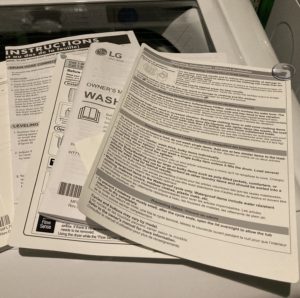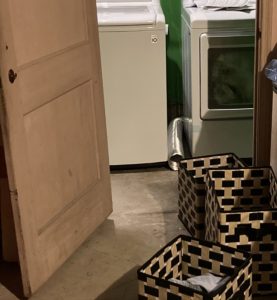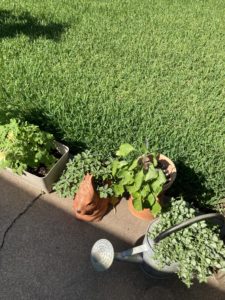The reference dates from 1796 in English, and from the French, “on ne saurait faire d’omelette sans casser des oeufs” (1742 and earlier), attributed François de Charette.
The proverb (in English) is: “You can’t make an omelette without breaking eggs,” and is defined as: In order to achieve something, it is inevitable and necessary that some mistakes are made or some sacrifices must occur.
The proverb is just window dressing for the story that comes next.
Many years ago, when I was teaching at a conference center in New Mexico, both boys were with me for those three weeks. We stayed in a small apartment, and every morning, I’d get up, get ready to go, and rustle up some breakfast for the kids. One morning, I cracked an egg to make an omelet for my breakfast. After I cracked it, I told Kevin (who was up by then) to come and look. I thought he’d probably not ever seen a double-yolked egg before. While it’s not unheard of, it’s certainly unusual. I kept that egg in the bowl I cracked it in, to show to Jeremy when he got up. I cracked another egg for my own breakfast, and, ta-dah, it also had two yolks. Wow! Those hearty New Mexico chickens. I don’t remember if I kept both double-yolked eggs, to make a scrambled-egg breakfast the next morning, but I certainly didn’t toss them out. Someone in the apartment ate them.
I think that, probably, I’ve had other experiences with double-yolked eggs, but, they don’t come up regularly. And, that brings me to the past couple of weeks.
- These are the kind of eggs that I purchase, because they come from Cage Free Hens.
- Every morning, I make a cheese and egg burrito for breakfast. I like the flour tortillas that I get at Central Market, tasty cheese, and these eggs.
- On September 28, this is from the egg I broke, for my breakfast. I cannot remember the last time I had a double-yolked egg.
- On Monday, October 4, I got out the ingredients for my egg and cheese burrito, and THIS is the egg I cracked open. (It obviously didn’t come from the same carton as the other one, because that one only had two eggs left, and I would have eaten them days earlier.) I was certainly astonished to see another double-yolked egg, but I scrambled it up, just like all the others, and had a nice burrito breakfast.
- And, on October 6, THIS is the double-yolked egg I cracked open, and said YIKES, and made myself a nice, tasty egg and cheese burrito, before I went outside to work in the yard.
It all seems really odd. I know that egg candling is a thing (where someone holds a lit candle behind an egg to check to see the health of the chick that’s growing there). I suppose that someone could do that with unfertile eggs and check for double-yolks. That seems like a lot of trouble, especially for folks on a farm that have lots of chickens laying eggs.
One site says: It turns out that doubles turn out more frequently among young hens than older birds, and that flocks of hens tend to be the same age. The chance of a young hen laying a double-yolked egg are roughly 1:30.
So maybe the eggs I’m buying are coming from “young hens.” Otherwise, the odds of getting a double-yolked egg are 1 in 1000. I suppose I’ve eaten 3000 eggs in the past several years, and I’m just catching up.
She gets up before dawn to prepare breakfast for her household
and plan the day’s work for her servant girls.
Proverbs 31:15 (New Living Translation)
Well, David prefers a bowl of cereal, and I don’t have any servant girls. But, I do make myself that egg and cheese burrito. When Peter’s here, I often make him scrambled eggs. Maybe next time he comes, I’ll get another double-yolked egg.

